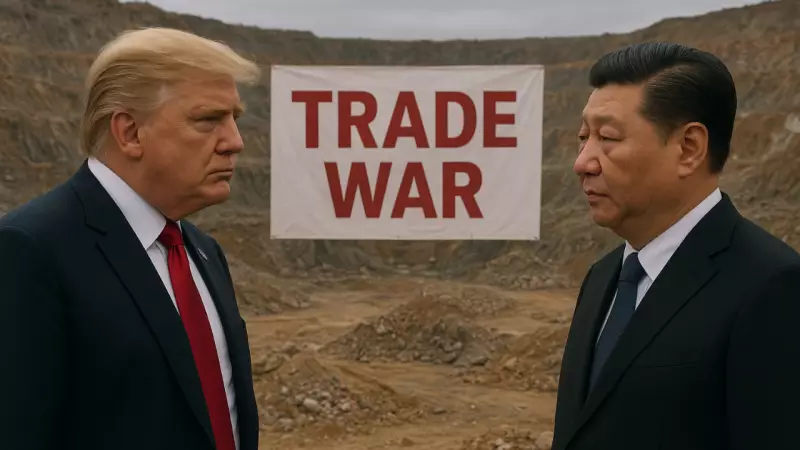
In a bold strategic move that could redefine global technology dominance, the United States is mounting an aggressive challenge to China's stranglehold on rare earth minerals. The unfolding drama represents one of the most significant fronts in the ongoing US-China trade war, with implications stretching from Wall Street to military readiness.
The $150 Billion Wall Street Gambit
At the heart of this geopolitical chess match lies a massive financial maneuver involving Wall Street's most powerful players. The US is orchestrating a sophisticated $150 billion deal designed to create an alternative supply chain for these critical minerals. This isn't just about commerce—it's about securing the technological future of Western nations.
Why Rare Earths Matter More Than Ever
Rare earth elements have become the invisible backbone of modern technology. These seventeen minerals power everything from smartphones and electric vehicles to advanced military equipment including:
- F-35 fighter jets and precision-guided missiles
- Smartphone displays and permanent magnets
- Electric vehicle batteries and wind turbines
- Advanced communications systems
China currently controls approximately 80-90% of global rare earth processing, giving President Xi Jinping enormous leverage in technological and military domains.
Trump's Multi-Pronged Counterattack
The American strategy involves several coordinated elements designed to break China's monopoly:
- Financial Firepower: Mobilizing Wall Street capital to fund mining and processing operations outside China
- Military Partnerships: Strengthening alliances with mineral-rich nations for secure supply chains
- Domestic Production: Reviving US mining capabilities through strategic investments
- Technological Innovation: Developing alternative materials and more efficient recycling methods
The Global Implications
This confrontation extends far beyond bilateral trade balances. The outcome will determine which nation sets the rules for the next generation of technology. As one analyst noted, "Whoever controls rare earths controls the future of tech innovation."
The US initiative represents the most serious challenge yet to China's mineral dominance, but questions remain about whether Wall Street's financial engineering can overcome Beijing's decade-long head start in controlling these critical resources.
As the trade war evolves into a technology war, the battle for rare earth supremacy may well become the defining economic conflict of our time, with consequences that will echo through global markets and international relations for decades to come.





